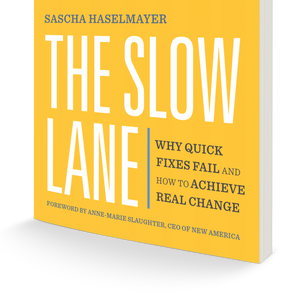It's been a month, and The Slow Lane book is alive and kicking! I am particularly grateful for the beautiful reviews and conversations that emerged from the launch of the book. Here, five highlights that mean a lot to me.
Michael Zakaras interviewed me for Forbes.com in an article titled Why Slow And Steady Might Be The Formula For Lasting Social Change and our interview started out by exploring the irony of writing a book about why quick fixes fail, after I originally set out to write a book called the Quick Fix. Key here, was of course, the immense value of inclusiveness, participation and sharing the power to create new answers with those suffering most from our broken mindsets and systems. That's, after all, what slowness is all about. And it busts the myth that our boldest visionaries are, by default, lone heroic disruptors. Instead, I found that slow lane movements deliver much bolder, more audacious visions for change. How they do it? By reimagining an entire system. We go on to explore how this slowness, even when facing a climate crisis, may offer us a new playbook to bring everyone along for the ride and get the right results, faster. And we look at what slowness means to the work of governments, and philanthropy, in particular.
Christian Bason, the CEO of the Danish Design Centre wrote a beautiful short review of The Slow Lane on LinkedIn. Here is some of what he wrote:
The Slow Lane convincingly argues that in order to address some of our most intractable challenges within social care, education, the environment, and health, we need to slow down to embrace five principles: Hold the Urgency, Listen, Share the Agency, Nurture Curiosity, and Use Technology as Enabler. Taken together, the Slow Lane principles form a blueprint for social change that is not only believable, but doable.
What sets this book apart however is not only the deep meaning of the principles, but how they are illustrated through more than a dozen cases from around the world, each case holding its own teachings on how to turn pain and struggle into lasting societal change that reaches thousands, sometimes millions, of people.
By adding his own enlightening stories to these examples -- from both his professional and personal life -- Sascha Haselmayer shows how the five Slow Lane principles apply equally to the worlds of civic activism, social entrepreneurship, government, business, and even family life. I cannot recommend this book enough to anyone seeking to change society for the better!
In her Review of the Slow Lane, Kyoko Uchida, editor of Philanthropy News Digest, wrote that what is refreshing about The Slow Lane is that it is not afraid to say how difficult it is to implement the five principles, and how our personal lives mirror these challenges. Her review introduces the rationale of each of the five Slow Lane Principles, highlighting how they also resonate with concepts like trust-based philanthropy. She concludes that each one of the seemingly simple principles requires a shift of perspective and a leap of faith. Ultimately, she writes, that The Slow Lane is a call to action to all of us, to learn honesty, trust, and humility and is an accessible and hopeful guide to the Slow Lane, where transformational change is achieved at the speed of trust.
In “How city leaders can get big things done in the 'slow lane'”, The Bloomberg Cities Network and I discussed lessons that Mayors and city leaders can take away from The Slow Lane. It is hard to let go of fast lane thinking, the constant search for quick (and big) fixes because it plays on our fears. Letting go of these expectations is even harder when, like a Mayor, you are in the public eye and feel compelled to always have an answer at hand, right away. But thankfully, The Slow Lane curates a lot of examples, from Iceland to New York City, that shows how public leaders can find success in picking up the slow lane playbook. The key insight: Governments have to rethink how they listen and learn. Instead of the usual box-ticking exercises in participation, we need to invite residents into the decision-process, and empower them to bring forward new ideas. And, we don't have to reinvent the wheel. Community expertise is readily available in the form of social entrepreneurs and other people who create organizations and movements that serve disadvantaged communities and create new solutions. Mayors should look carefully at who these people are, and how they can get behind the exciting solutions they create.
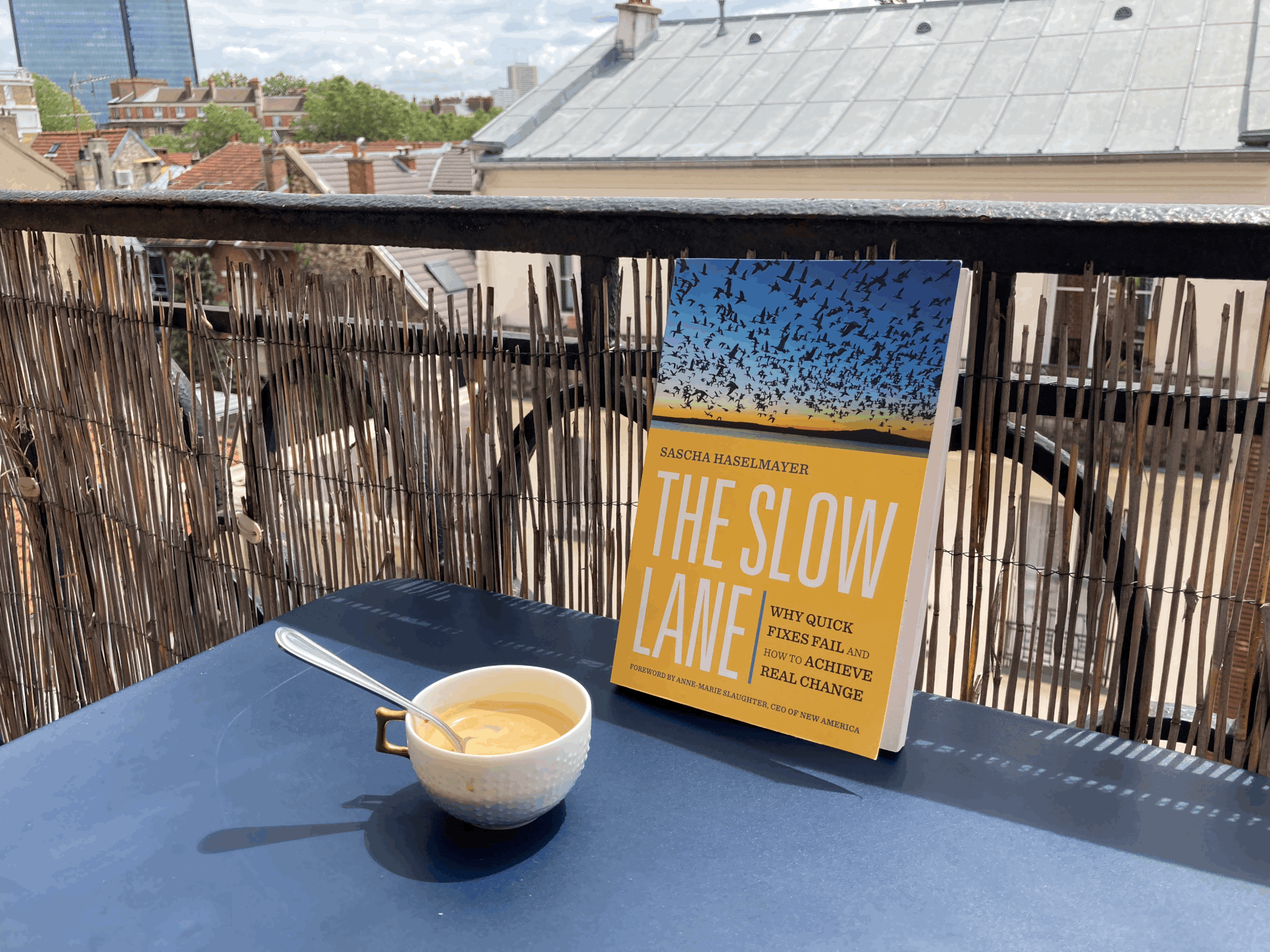
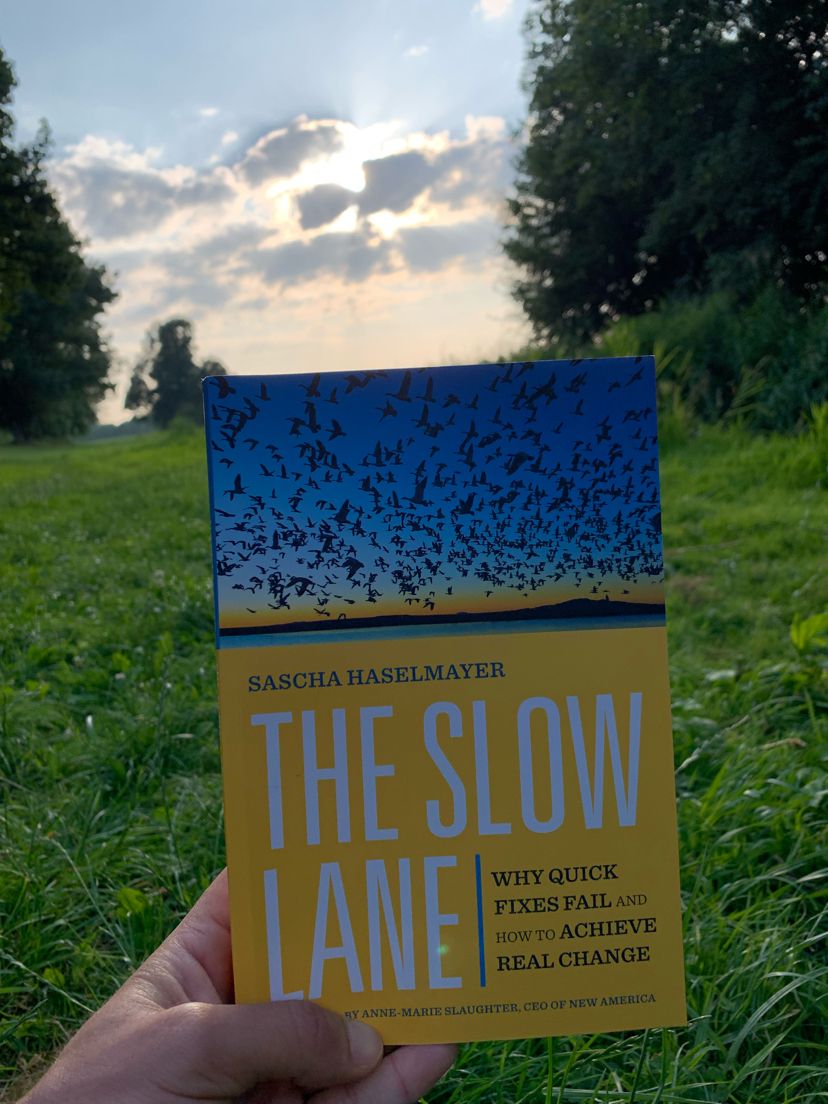
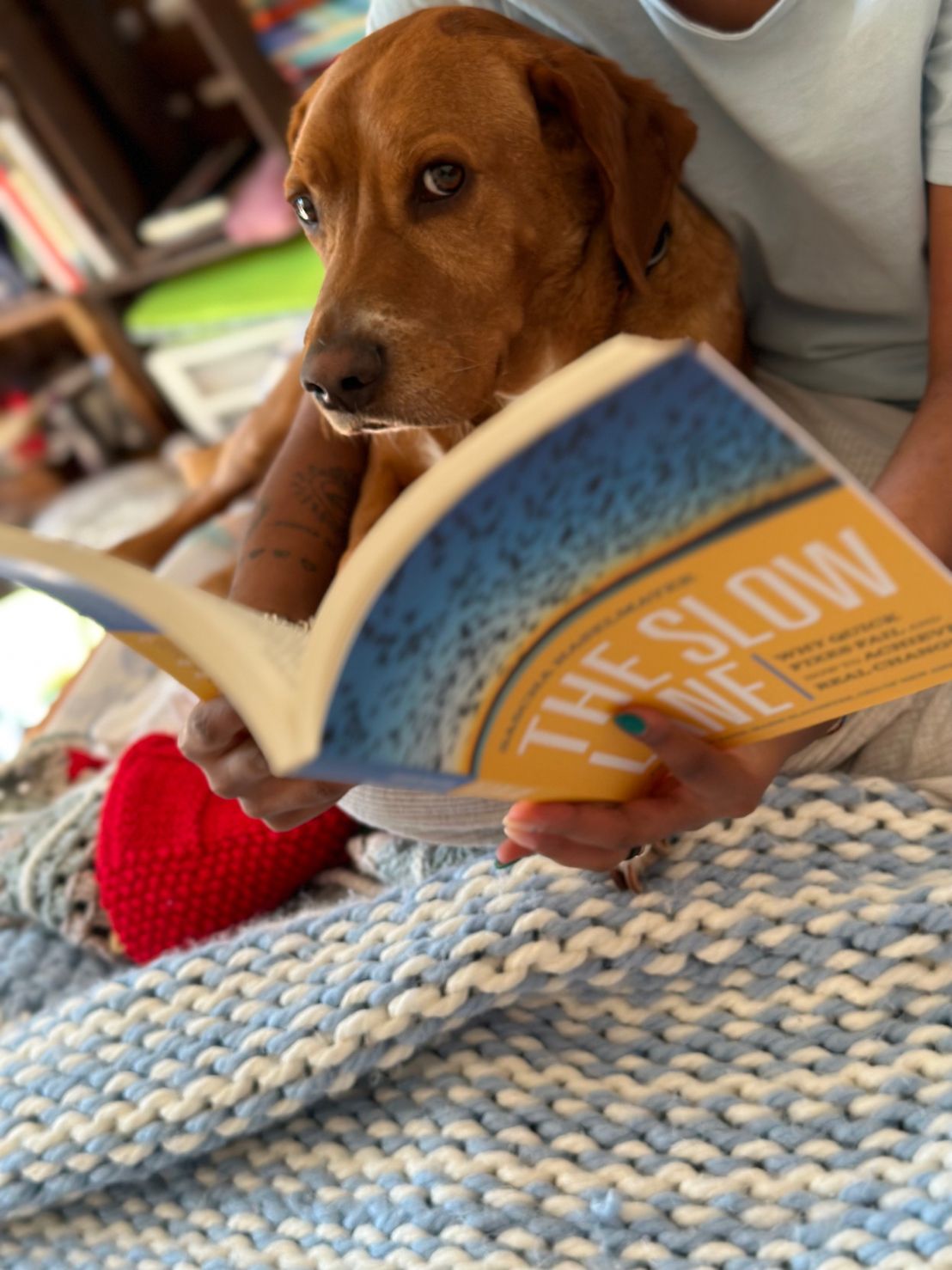
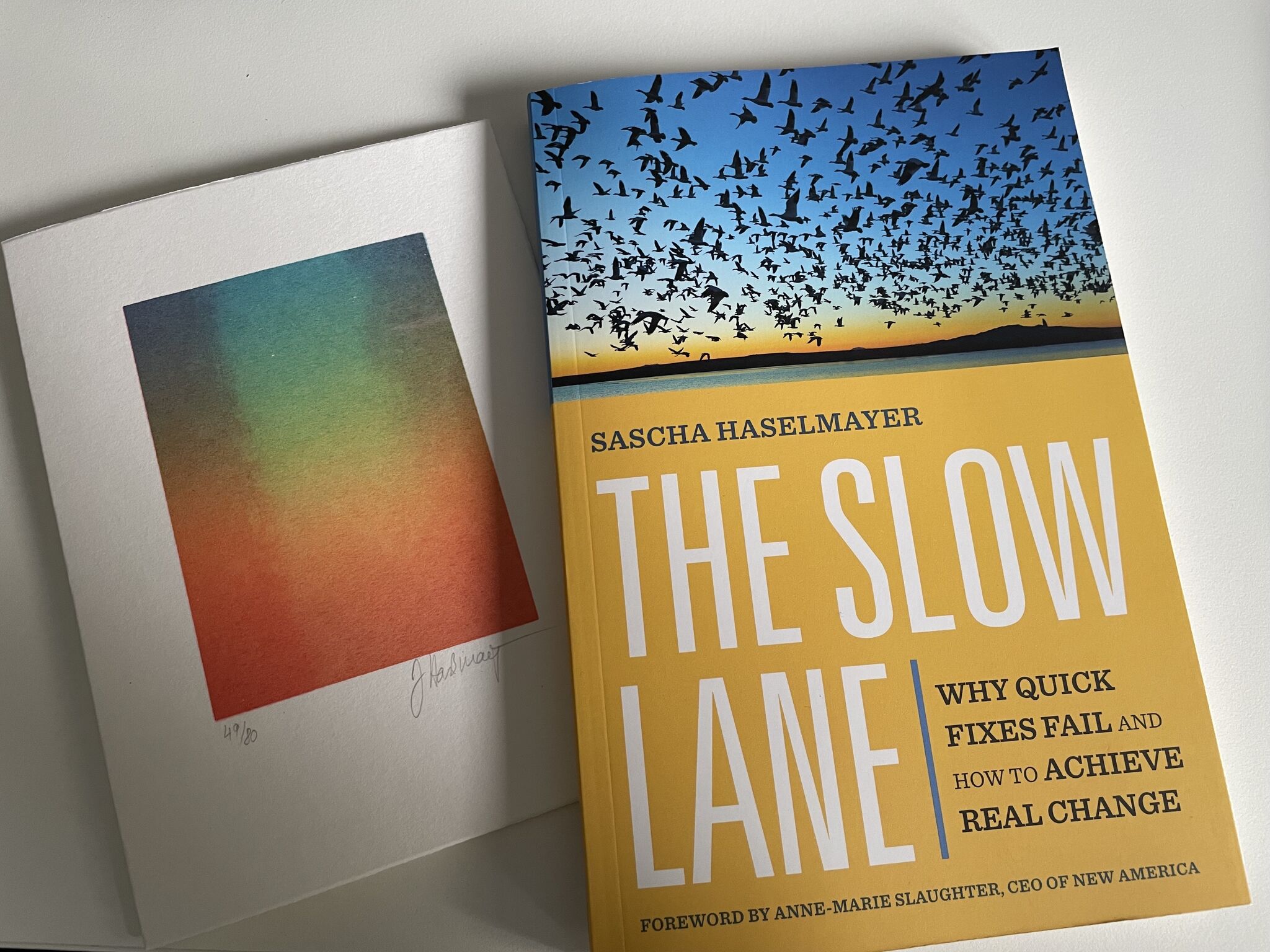
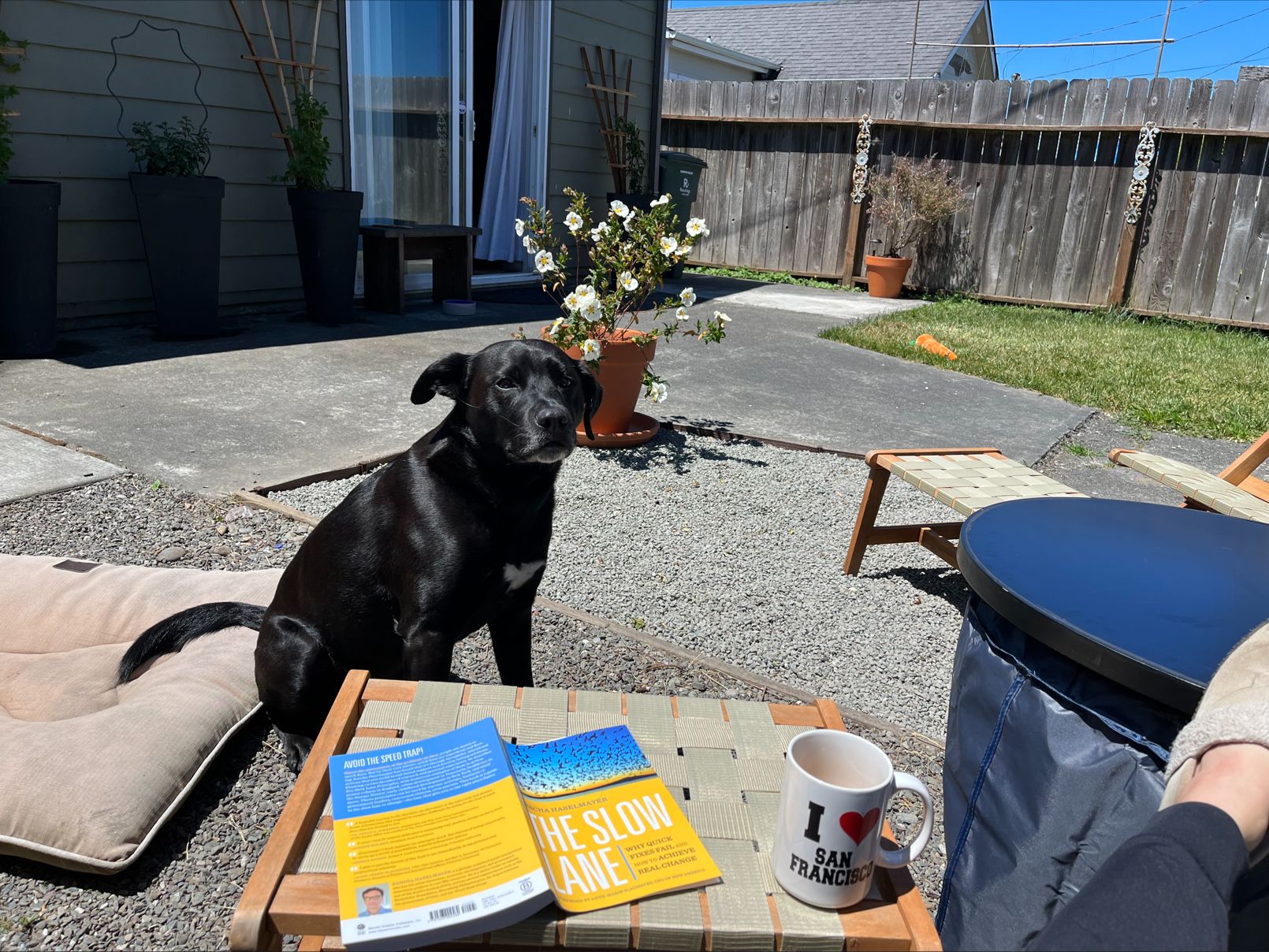
Please keep the posts, reviews and photos coming. They help us share the idea that change in the world should happen at the speed of trust, and involve everyone.
If you still haven't got The Slow Lane book, go get it! Buy it at Amazon.com or Audible, more sustainably at Bookshop.org (UK/US) or Buch7 (Germany) or your preferred local or online bookseller!
